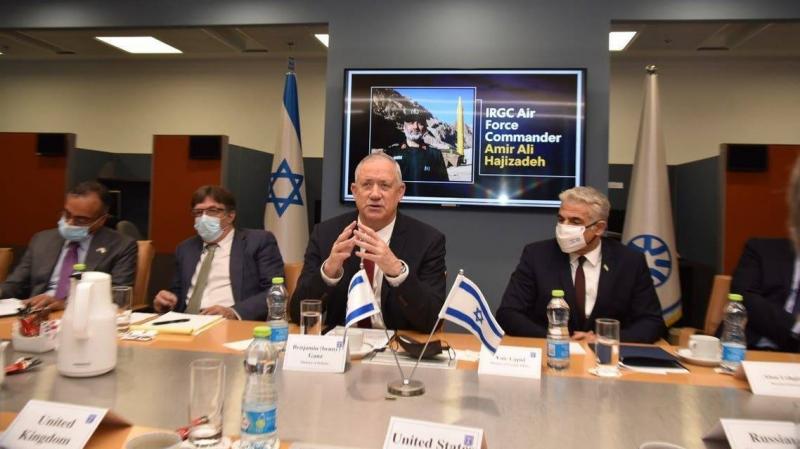Israeli Defense Minister Benny Gantz stated on Wednesday that he informed ambassadors at the United Nations Security Council that the person responsible for the attack in the Gulf of Oman is Saeed Arjani, who heads the drone unit in the Iranian Revolutionary Guard. During a briefing with foreign ambassadors about the attack on the ship Mercer Street, he said that the world must act now to protect international navigation and that Iran is 10 weeks away from obtaining nuclear materials that could enable it to develop a nuclear bomb.
Gantz tweeted: "I revealed to the ambassadors of the countries in the Security Council that the one behind the attack in the Gulf of Oman is Saeed Arjani, and that Israel has taken action over the past week through all political and security channels to urge the international community to put boundaries on Iran so it stops its aggressive behavior."
He added: "This is not a conflict between armies in Syria, nor is it a secret operation against military facilities. It is an attack on international trade routes, an assault on freedom of movement. It is a crime against humanity, and the world needs to act now."
For his part, Foreign Minister Yair Lapid confirmed that the world must act now against Iran and its global crimes and aggression on trade routes. The United States and Britain stated that they will work with their allies to respond to last week's attack on the Liberia-flagged Mercer Street tanker, which is owned by a Japanese company and managed by Israeli firm Zodiac Maritime.
Iran denied any involvement in the attack, which is suspected to have been carried out by a drone, stating it would respond immediately to any threat to its security. Britain, Romania, and Liberia informed the Security Council that it is "highly likely" Iran used one or more drones to execute a deadly attack on oil tankers last week off the coast of Oman.
U.S. officials in informal meetings indicated that they are closely monitoring the situation but do not expect a military response at this time. Tensions have increased in the Gulf waters between Iran and Israel since 2018, when former U.S. President Donald Trump withdrew from the 2015 nuclear agreement between Tehran and six world powers and reinstated sanctions that crippled the Iranian economy. Iran and Israel have exchanged accusations over attacks on ships belonging to both sides in recent months.




